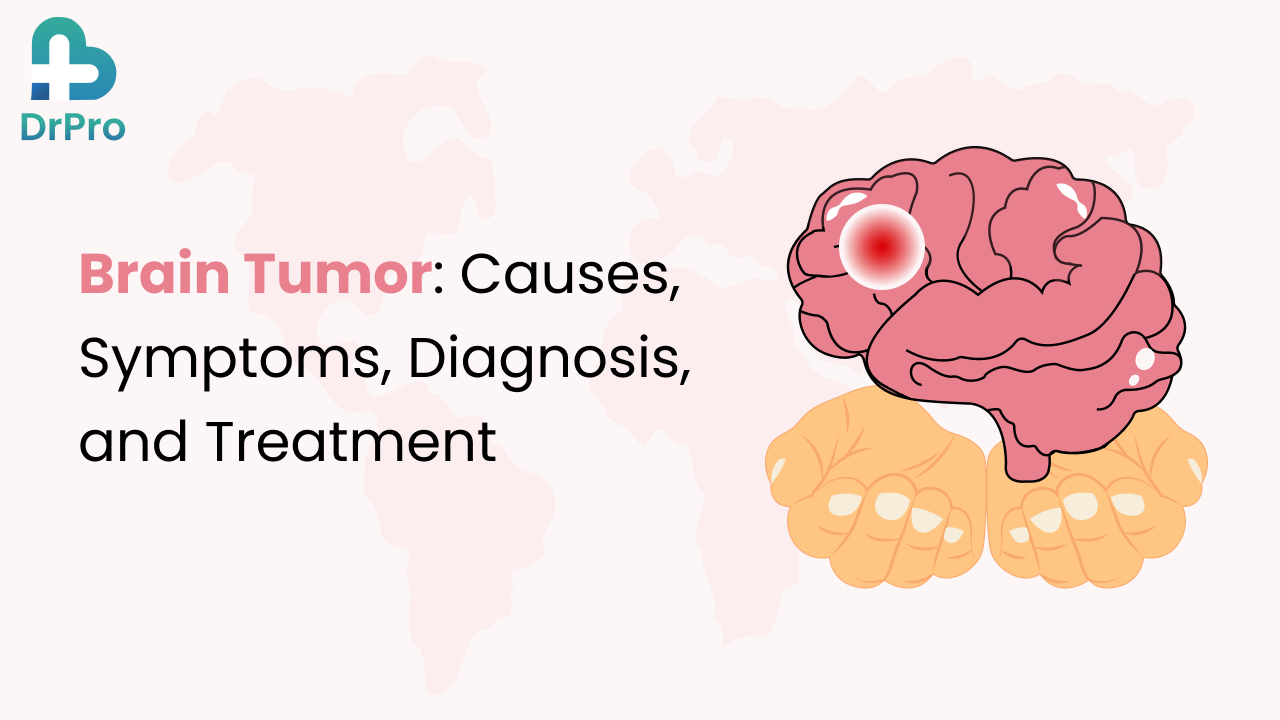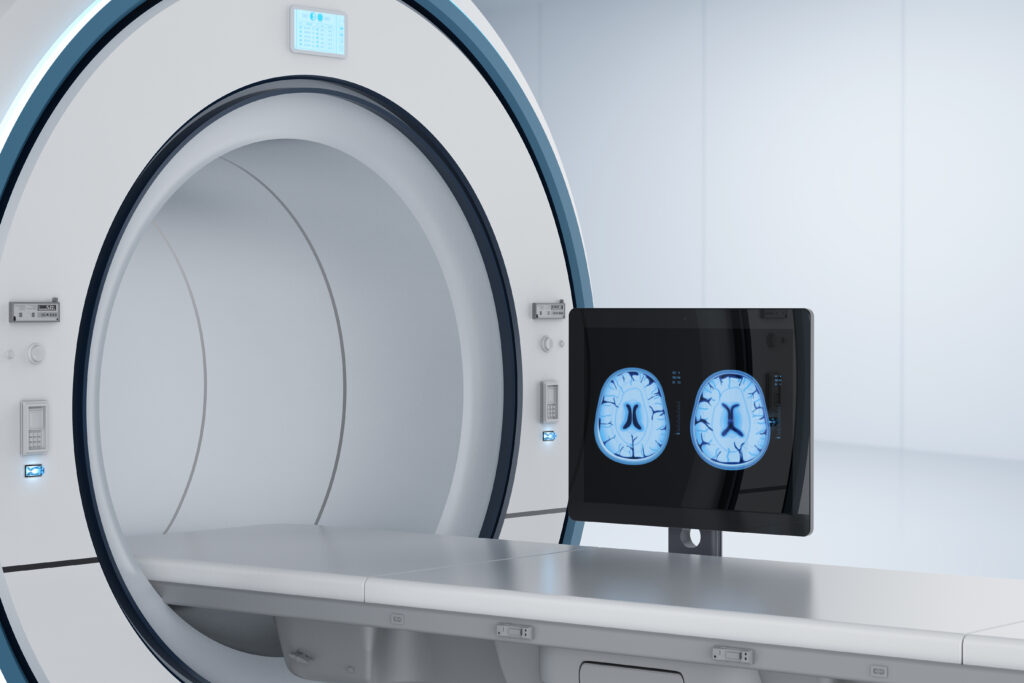Quick Summary
A brain tumor is an abnormal growth of cells in the brain or spinal canal that can disrupt normal brain functions. They can be benign or malignant, hence differing in severity and impact on health. Proper treatment and early detection can easily manage the condition.
Introduction
Although the medical condition known as brain tumor is pretty rare, it could go seriously wrong in terms of one’s health. Not all of these conditions have detrimental effects on the organism-the benign conditions do not disrupt any of the major operations of the brain whereas it does so with all serious symptoms for malignant cases. The understanding of causes, symptomatology, diagnostic means, and treatment measures becomes an urgent need for immediate intervention in each case. This paper explores the vital information associated with brain tumors, with considerations for causes, symptoms, diagnosis, and therapeutic measures.
What is a Brain Tumor?
A brain tumor can be defined as the formation of cells in the central spinal canal or the brain outside of normal tissue, and it grows unchecked to produce a mass or lump in the brain that invades the normal activity of the brain. The brain tumors are benign or malignant. Non-cancerous tumors in the brain may not spread to other parts of the body, but they are known to cause destruction, usually through compressing surrounding tissues. Malignant tumors may grow wildly as well as metastasize to other parts of the body.
DrPro is dedicated to enhancing healthcare delivery through innovative solutions, including streamlined patient management and advanced diagnostics. By leveraging cutting-edge technology, DrPro ensures accurate diagnoses, effective treatment options, and improved patient care pathways. From intuitive Electronic Medical Records software to integrative tools for appointments and billing, DrPro empowers healthcare teams to focus more on patient care and less on administrative tasks, ultimately fostering a healthier community through efficient, compassionate service.
Causes of Brain Tumors
Brain tumors may arise due to several reasons, some of which are still unknown. The following are the key causes:
Genetic Predisposition:
It develops as a result of a genetic mutation, which an individual might inherit. An example is having a family history of brain tumors; more individuals have developed brain tumors when they have such background family histories.
Inborn Conditions:
In some people, these conditions could have developed even before an individual is born. There are various such conditions where neurofibromatosis, Li-Fraumeni syndrome, and Turcot syndrome, among other inborn conditions, significantly raise the possibility of acquiring a brain tumor.
Environmental Factors:
Some other environmental causes include exposure to toxins from the environment in the form of chemicals or radiation, which may bring about brain tumors. Exposure to pesticides, industrial chemicals, or radiation for quite a long time increases one’s risk.
Viral Infections:
Epstein-Barr and HIV viruses are also associated with causing brain tumors.
Age-related Risk:
The risk for brain tumors increases with age, and the chances of developing such tumors increase particularly after the age of 45 years. On the other hand, there are some specific types of brain tumors, which are known as gliomas, that can appear in young people.

Common Symptoms
The symptoms associated with brain tumors are related to the size, location, and type of tumor. The following are the common symptoms that might result from a brain tumor:
Headaches:
Severe and worsening headache, but especially one that worsens in the morning, may indicate increased pressure within the brain.
Seizures:
An uncontrolled electrical disturbance can occur in the brain, causing seizures. They can vary in severity but are a common symptom of brain tumors.
Mental Changes:
Loss of memory and personality, which can be felt if the brain tumor occurs in areas controlling cognitive activities.
Nausea and Vomiting:
Apart from these, the increasing pressure inside the skull caused by the tumor is accountable for the nausea and vomiting of a patient. The effects usually occur during the morning time.
Vision and Speech Problems:
There are numerous people who, after a brain tumor takes place in parts of the brain controlling their eyesight or speech ability, experience the following:
Blurry eyesight, poor speech, or complete deafness.
Weakness and Fatigue:
Generalized weakness and fatigue are often present since the body will attempt to adjust to a brain tumor’s impacts on it.
Diagnosis of Brain Tumors
Diagnosis of a brain tumor is a complex process that involves a complete history and physical examination as well as several diagnostic tests:
Medical History and Physical Examination:
There is an elaborate assessment of the patient’s symptoms, medical history, and the general condition of his or her health in diagnosing a brain tumor.
Imaging Tests:
-
CT Scan (Computed Tomography):
A CT scan takes X-rays to build an image of the brain to look for abnormalities or tumor presence.
-
MRI (Magnetic Resonance Imaging):
An MRI is also able to provide high-quality images of the brain; the most common use for MRI is in the case of a brain tumor. -
PET Scan (Positron Emission Tomography):
This imaging test might be used to identify actively working tumor cells and observe how cancer has spread.
Biopsy:
In a biopsy, a part of the tumor tissue is taken for microscopic examination to diagnose the kind of tumor and if it is malignant or benign.
Neurological Exams:
The coordination and reflexes of the nervous system and cognitive skills of the brain are checked in order to identify abnormal functioning in the brain.
Other Diagnostic Tests:
Tests carried out may also be; EEG, which measures electricity through the brain, and, another lumbar puncture meant to check cancer in your spinal fluid.
Treatment Options for Brain Tumors
Treatment is not all the same but depends on the type, their areas, and size. Brain patients should be overall fine fit to be given various medical treatments. Such methods:
Surgery:
Surgery is the primary treatment for most brain tumors. Most of the tumors can be removed with the least amount of damage to healthy tissue. Some cannot be completely removed because of their location.
Radiation Therapy:
This kills tumor cells by using high-energy radiation to shrink or eliminate the cells. Techniques like stereotactic radiosurgery and proton therapy can target the tumor precisely while leaving healthy tissue intact.
Chemotherapy:
Chemotherapy is the use of medications to kill or inhibit the growth of cancer cells. This is usually used together with surgery and radiation in malignant brain tumors.
Targeted Therapy:
The novel treatments are targeted at specific genetic mutations or proteins responsible for the growth of the cancer cells. Targeted therapies are less toxic compared to chemotherapy and can be used to treat specific kinds of brain tumors.
Clinical Trials:
The clinical trials will give the patient a chance to take part in the experimental treatment and newer therapies that have not yet been practice extensively. A patient will obtain the latest advancements in the management of brain tumors by taking part in clinical trials.
Supportive Care:
In addition to primary treatments, patients receive care that includes pain control, physiotherapy, and psychotherapy to handle symptoms and enhance quality of life.
Therefore, understanding the causes of brain tumors, symptoms, and treatment options is important, and one should seek early diagnosis and effective intervention in case of symptoms such as persistent headaches, seizures, or changes in cognitive behavior.

Conclusion
Understanding brain tumors and their causes, symptoms, and treatment options is vital for timely diagnosis and effective intervention. If you or someone you know is experiencing symptoms like persistent headaches, seizures, or cognitive changes, it’s crucial to consult with a healthcare professional for a thorough evaluation. Early diagnosis and treatment can make a significant difference in managing brain tumors and improving outcomes.
For more content on leading a healthy life, follow our DrPro Wellness.
FAQs
Q1.What are the most common causes of brain tumors?
The most common causes include genetic predisposition, certain inborn conditions, environmental factors, viral infections, and age-related risks.
Q2. What are the early symptoms of a brain tumor?
Common early symptoms include headaches, seizures, memory loss, nausea, vomiting, and changes in vision or speech.
Q3. How is a brain tumor diagnosed?
Diagnosis involves medical history and physical exams, imaging tests like MRI and CT scans, biopsy, and neurological exams.
Q4. Can brain tumors be treated?
Yes, treatment options include surgery, radiation therapy, chemotherapy, targeted therapy, and supportive care.
Q5. Are there any risk factors for brain tumors?
Risk factors include genetic predisposition, environmental exposure, viral infections, and advancing age.


